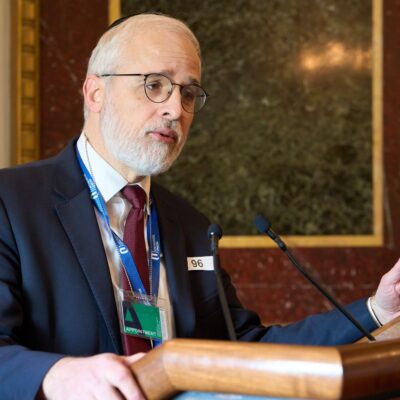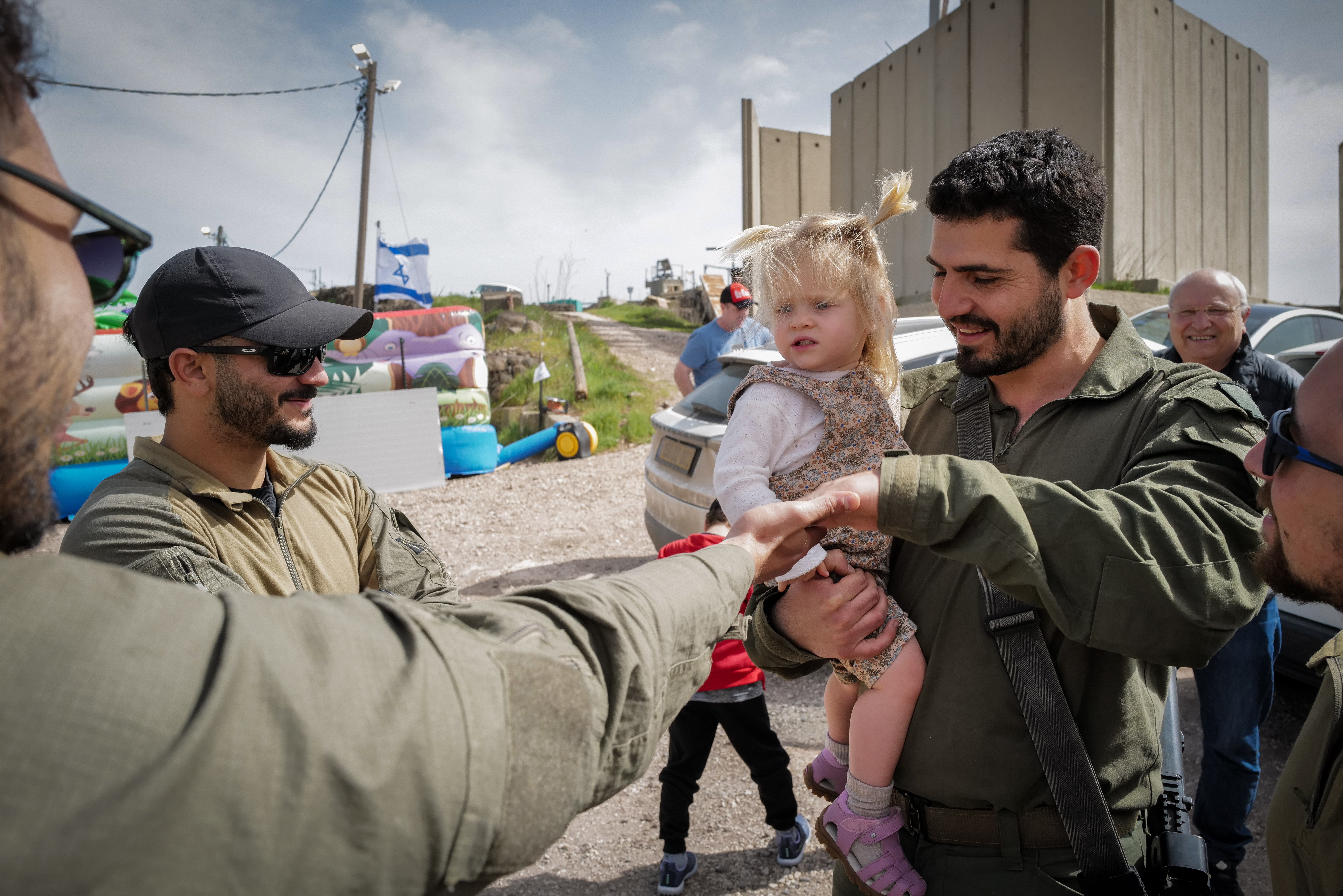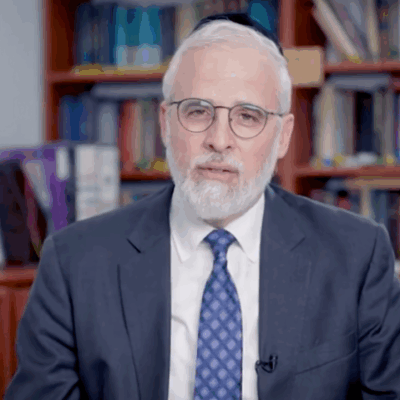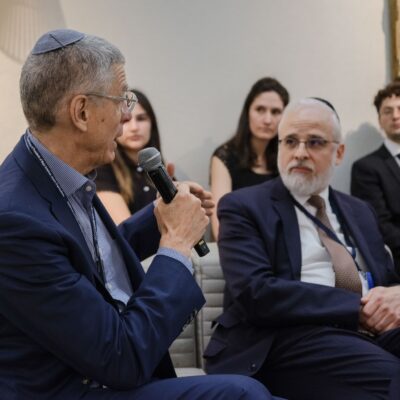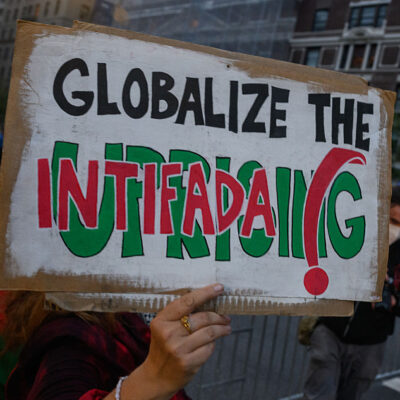Opinion
READER RESPONDS
We responded. But we forgot how to imagine.
I wholeheartedly agree with William Daroff (“This is what leadership looks like,” June 19): After Oct.?7, 2023, Jewish organizations moved swiftly — securing emergency funding, filing legal complaints and protecting families. Our communal infrastructure held fast when it mattered most, as it always has.
But — and this is urgent — we failed to imagine what was coming.

miakievy/Getty Images
By the time faculty at Columbia University defended Hamas as “decolonial resistance,” or a Chicago Public School teacher was caught on video praising the Oct. 7 massacre to middle school students, or the New York City Department of Education sent out a Hamas-produced tool kit, the damage was already done. We didn’t see the early warning signs, nor did we fully grasp how deeply antisemitism had taken root on the Left — in academia, among activists, on school boards and even in courtrooms.
We were reactive, not proactive. Why?
It was because, day in and day out, our attention was consumed by preserving who and what we thought we were, that we missed critical signs of who and what we needed to become. We steadfastly supported our century-old communal infrastructure, without fully adapting it to the needs of today. We poured vast resources into coordination, draining what we needed to engage with those beyond our community and tackle the challenges at hand. Rather than pushing for critical reforms in digital environments to power a resilient democracy, we focused on messaging and marketing campaigns to respond to immediate needs. We talked among ourselves instead of making the time and creating the space to imagine new models of collaboration, education and connection with those around us.
The result is difficult to swallow. Antisemitic incidents across the U.S. are up 360% since 2023. Seventy percent of Jews report having personally experienced antisemitism. Nearly one-third of Jewish college students face professors who foster hostile or exclusionary learning environments. And despite our enduring commitment, Israel is more isolated than ever.
It’s time — finally — to make the systemic changes needed to address the challenges we can no longer afford to ignore.
1. Institutionalize foresight and scenario planning
Too often, we treat strategic foresight as a luxury, not a necessity. But future threats require imagination. We need to create durable infrastructure for early warning systems — not just on-campus or online, but across legal, financial, cultural and political domains. That means supporting think tanks and task forces that map emerging risks; backing creative studios that can test new counter-narratives; and funding community resilience pilots that bridge across generations and geographies.
Imagine a Jewish “Center for Strategic Foresight” — something like a RAND or Aspen for our communal future. That doesn’t exist. It should.
2. Invest in relational capital outside the Jewish bubble
Antisemitism does not exist in a vacuum. It is shaped by broader forces — political polarization, online radicalization and disinformation campaigns that erode social trust and democratic norms. To counter it effectively, we need to build coalitions rooted not only in shared threat, but in shared purpose — around civil rights, democracy, education and pluralism.
That means engaging civic institutions before the crisis hits: school boards, teacher unions, city councils and professional associations. In Orange County, Calif., Jewish and civic leaders have pushed the local Board of Education to ensure that ethnic studies reforms include accurate education on antisemitism and Jewish identity, after earlier drafts omitted or distorted Jewish narratives. At the American Psychological Association, Jewish psychologists are calling on leadership to address a hostile climate that marginalizes their identity and beliefs.
While these efforts are important steps, they remain too isolated, too fragmented and too under-resourced to meet the national scale of the threat.
3. Shift from emergency response to anticipatory philanthropy
Our funding systems mirror our crisis mindset. After Oct. 7, 2023, emergency fundraising soared — and that was necessary. But we must now pair short-term response with long-term investment in infrastructure, innovation and strategic foresight.
Nearly 25 years ago, a wave of Jewish innovation focused on next-gen engagement gave rise to JDub Records, Joshua Venture and the Jewish Farm School — all of which have since closed. But that same era of bold, ecosystem-wide investment also produced enduring successes like Moishe House, which now supports over 100 communal homes around the world led by young adults, and OneTable, which empowers thousands of people each year to host Shabbat dinners and build intentional Jewish community on their own terms. These models prove that with the right early support, grassroots experiments can scale into institutions and become disruptors that reshape how we work, connect and imagine the Jewish future.
Imagine if even 10% of communal philanthropy were earmarked for “moonshot” projects — early-stage ideas with the potential to transform how we communicate, educate and organize against antisemitism.
Where is the innovation fund to incubate a next-generation media platform for Jewish voices? The endowed fellowship for counter-disinformation research? The rapid-response litigation lab with cross-communal reach?
Without this kind of forward-looking investment, we remain trapped in a cycle of reactivity — constantly responding, rarely advancing. It’s time to take risks and try new things; to invest where failure is part of the process, and bold experimentation is the only path to real progress.
If Daroff reminds us what we did, this is a call to imagine what we could become.
What could we have imagined — and protected — if we’d paused to listen and created the space to dream as much as we mobilized to respond?
Imagination is not a luxury. It’s our strategic imperative. It’s time to make systemic, visionary change.Rebecca Dinar is the executive director of the Samson Charitable Fund. She served as spokesperson for AIPAC from 2001 to 2006 and associate vice president of strategic marketing and communications for the Jewish Federations of North America from 2014 to 2021.

 Add EJP on Google
Add EJP on Google